1. Gever Tulley
1.1. The World needs reckless curiosity
1.2. 50 dangerous things you should let your children do (boek)
1.3. School = cells & bells prison
1.4. Twitter.com/gever
2. Maarten Lens-Fitzgerald
2.1. Layar
2.1.1. Berlin wall layer
2.2. AR began with IBM in 1992
2.3. Lots of marketing
3. Mark Frauenfelder
3.1. Make mag
3.1.1. 126000 circulation
3.1.2. Young makers program
3.2. Schools train kids to be scholars
3.2.1. Young makers instead of scholars
3.3. A curriculum in a kite
3.4. Create public schools in public places
3.5. TechShops
4. Tehnolgy will save us
4.1. Producers instead of consumers
4.2. All tech is designed, so has artificial constraints & limits
4.3. Experiments in art and technology: group of artists
4.3.1. Lost faith in industry by the 70s
4.4. Planned obsolence transforms desire into need
4.4.1. E-waste
4.5. Physical space for workshops
4.5.1. Ie: hack a doorbell together with a deaf 87-year old
4.5.2. Learn to change a power plug
4.5.3. Hacker approach to life
5. Joris Peels
5.1. 3D printing
5.1.1. I.materialize
5.1.2. Unique objects
5.1.2.1. Only one person has to like it
5.1.2.2. Gps holder for bicycle
5.1.3. Let anyone make anything
5.1.4. Process doesn't scale well
5.1.4.1. Still a lot of handwork
5.1.4.1.1. Remove support material
5.1.4.1.2. Can not be outsourced to China
5.1.4.2. Expensive material
5.1.4.3. Not suitable for large objects
5.1.5. Mass production
5.1.5.1. Millions of copies
5.1.5.2. Cheaper per item
5.1.5.3. Never right for you
5.1.5.4. Lots of things that suck = no real choice
5.1.5.5. Standardized experience, etched by brands
5.1.6. Been around for 20 years
5.1.7. 3D tin: browser based software for kids to create 3D objects
5.2. We were all makers once, as kids
6. Mark Surman
6.1. Hackosaurus
6.2. Re-tinkerification of the web
6.3. Punk rock
6.3.1. Being in control
6.3.2. Making things
6.3.2.1. Music
6.3.2.2. Photocopy art
6.3.3. Learn to make an open-ended world
6.4. 2400 baud modem
6.4.1. Sound
6.4.2. Early Internet
6.4.3. First progressive news site in Canada
6.4.4. Clicking 'view source'
6.5. Tinkerification of learning has happened
6.5.1. Threats
6.5.1.1. You can't view the source of the iPad
6.5.1.2. Closedness of Facebook
6.5.2. Encourage kids to hack & tinker with the web
6.5.2.1. The web is yours
6.5.2.2. Teaching a hacker ethic
6.5.3. Take learning out of the Industrial Age
6.6. Scouts
6.6.1. 40 million kids
7. Tan Le
7.1. Kineticubes
7.1.1. Art by thought
7.2. Eeg control interface
8. Noam Persky
8.1. Progress is key to motivation
8.2. Use screen (iPad) as collaboration tool
9. Ed Baafi
9.1. Generation D
9.1.1. Diy
9.1.1.1. Fablab
9.1.1.2. Hackerspaces
9.1.1.3. Makerbot
9.1.1.3.1. Cfr. Apple I, made of wood.
9.1.2. Digital
9.1.2.1. You will be illiterate if you can not do some programming
9.1.2.1.1. Scratch
9.1.2.2. Processing: programmatic art
9.1.2.3. Physical programming (arduino)
9.1.3. Democracy
9.1.3.1. Web:1995
9.2. Ed@modk.it
10. Rodrigo Arboleda
10.1. OLPC
10.1.1. Uruguay
10.1.1.1. All primary school schildren
10.1.1.2. Doctor for president
10.1.1.2.1. Urgency
10.1.1.2.2. Epidemic
10.1.2. 2 mio devices delivered
10.1.3. MIT (seymour papert)
10.1.3.1. 1967
10.1.3.1.1. A computer for every child?
10.1.3.2. Robotics Invention System
11. Walter Bender
11.1. Olpc
11.1.1. Sugar OS
11.1.1.1. Abacus
11.1.1.1.1. Powerful way to understand counting
11.1.1.1.2. Create own custom abacuses
11.1.2. Designed so kids can repair it themselves
11.1.2.1. There's a yt video of a canadian 8yr old
11.2. Program or be programmed
11.2.1. 'There's an app for that'
11.2.2. Henry jenkins and the culture of the remix
11.2.2.1. It's ok to appropriate ideas and change them
11.3. Computation should be on every child's low shelf
11.4. The world is not complete, and you can solve problems
11.5. Learning software should be incomplete (oss)
11.6. Sumerians invented base-12 (knuckles of one hand, minus thumb)
11.7. Presentation made in SugarOS
11.8. Technology is anything invented after you were born - Alan Kay
11.9. If you can't make mistakes in school, where can you make them.
12. Gabe Zichermann
12.1. Gamification
12.1.1. Engage audience
12.1.1.1. Collaborative play
12.1.2. In-dash fuel-saving games in cars
12.1.3. Sped limit lottery: drive below the speed limit and win the fines of the speeders
12.1.4. Rewards everywhere
12.2. Where in the world is carmen sandiego is the most amazing game ever made
12.3. Gsummit.com
12.4. Real world uninteresting?
12.5. Multilingual ppl perform better on standardized tests
12.6. Videogames are constant learning
12.6.1. Learning is multiplayer
12.7. Ananth Pai
12.7.1. Gamified learning
